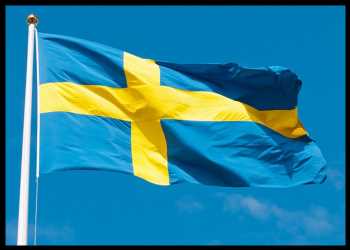Swedish Economy Shrinks 0.6% In Q4
Sweden’s economy contracted in the final quarter of 2022, after expanding in the previous two quarters as rising interest rates, high inflation and uncertainty over the economic outlook likely damped spending at the end of the year, preliminary figures from Statistics Sweden showed on Monday.
Gross domestic product declined 0.6 percent sequentially in the December quarter, reversing a 0.6 percent rise in the September quarter.
On a yearly basis, the economy also shrank 0.6 percent in the fourth quarter, in contrast to a 2.5 percent expansion in the preceding three-month period. Economists had forecast the growth rate to ease to 1.2 percent.
Further, this was the first annual contraction since the second quarter of 2021.
Data also showed that GDP fell at a stable pace of 0.5 percent monthly in December.
On a yearly basis, GDP decreased a working-day-adjusted 1.8 percent in December, following a 0.6 percent drop in November.
Read more: Sweden Inflation Highest In Nearly 32 Years On Higher Electricity, Food Costs
During the year 2022, the economy expanded 2.4 percent compared to the previous quarter.
“The development for 2022 as a whole was however slightly above the historical average seen during the last decades, but this is mainly explained by low economic activity during the first half of 2021 rather than a clear increase in GDP during 2022” Neda Shahbazi, an economist at Statistics Sweden, said.
The detailed figures for the fourth quarter will be published on February 28.
“With the more timely data for December and January still very gloomy, a significant recession seems to be underway,” Capital Economics economist Andrew Kenningham said.
In December, the National Institute for Economic Research revised down the growth forecast for the Swedish economy and forecast a more worse downturn this year as high interest rates and rising inflation are expected to hurt consumer spending and the labor market.
The NIER forecast a 0.9 percent contraction in the Swedish economy this year and a 1.3 percent growth next year.
The think tank expect the Riksbank to raise the policy rate to 2.75 percent in February, and the rate to begin to come back down towards the end of the year as the slowdown bites and inflation returns to normal levels.
Source: Read Full Article

